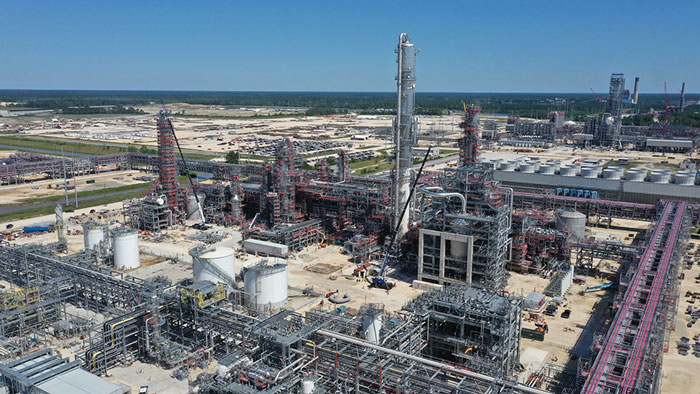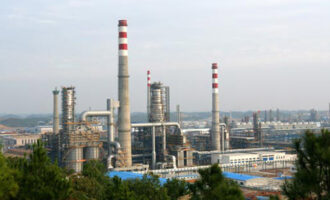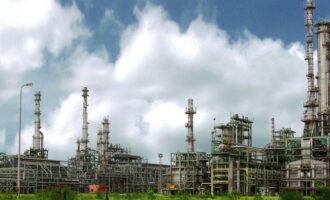
Sasol announces beneficial operation of world-scale ethane cracker in Louisiana
South Africa’s Sasol announced last week that its world-scale U.S. ethane cracker has reached beneficial operation on 27 August 2019. Sasol’s new cracker, the heart of its Lake Charles Chemicals Project (LCCP), is the third and most significant of the seven LCCP facilities to come online and will provide feedstock to six new derivative units at Sasol’s Lake Charles multi-asset site.
“The cracker is the cornerstone of Sasol’s transformation into a global chemicals company,” said Sasol Joint President and Chief Executive Officer Stephen Cornell. “It solidifies our presence in the United States and will anchor our operations there for decades to come.”
Sasol’s Lake Charles Ethane Cracker, which uses Technip Stone & Webster technology, is one of the largest in the world with a nameplate capacity of 1.54 million tons per year. Approximately 90% of the cracker’s ethylene output will be further processed into commodity and high-margin specialty chemicals for markets in which Sasol has a strong position, underpinned by collaborative customer relationships.
The ethylene produced in the facility will be used in six downstream plants on site to produce a range of high-value derivatives including ethylene oxide, mono-ethylene glycol, ethoxylates, low density and linear low-density polyethylene, and Ziegler and Guerbet alcohols. Sasol’s customers use these products as ingredients in detergents, fragrances, metalworking and lubrication fluids, abrasives, paints and coatings, film, food packaging, personal care products, and many more applications and end-markets. The remaining 10% of the ethylene will be sold on the merchant market and supply Sasol’s share of its high-density polyethylene (HDPE) joint venture with INEOS in the state of Texas.
The utilities and infrastructure systems that enable the entire project are fully operational. The linear low-density polyethylene and ethylene oxide/ethylene glycol units achieved beneficial operation earlier this year. The low-density polyethylene unit is expected to achieve beneficial operation by November 2019, while the Ziegler alcohol, ethoxylates and Guerbet alcohol units are on track to achieve beneficial operation in early 2020.
“With the first three units commissioned, plants representing more than 60% of the project’s total output are now online,” said Sasol Joint President and Chief Executive Officer Bongani Nqwababa. “Our construction and commissioning teams are working flat out to deliver the rest of the units between November 2019 and by the first quarter of 2020.”
At present, the cracker continues to operate stably at a capacity utilisation of around 50%. The current output is utilised by the LCCP’s downstream units and the remainder is sold to external customers. The company will continue to focus on improving the ethylene quality and ramp up the plant according to plan.









